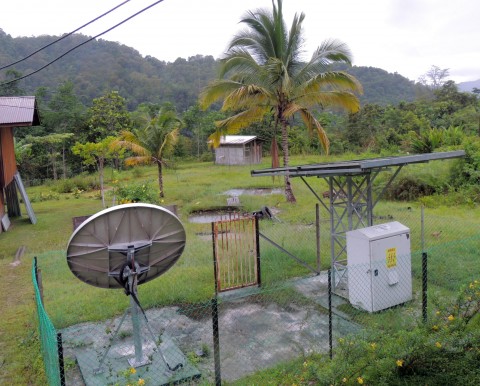Innovative approaches are needed to address the needs of the 1.3 billion people lacking electricity, while simultaneously transitioning to a decarbonized energy system. With particular focus on the energy needs of the underserved, we present an analytic and conceptual framework that clarifies the heterogeneous continuum of centralized on-grid electricity, autonomous mini- or community grids, and distributed, individual energy services. A historical analysis shows that the present day is a unique moment in the history of electrification where decentralized energy networks are rapidly spreading, based on super-efficient end-use appliances and low-cost photovoltaics. We document how this evolution is supported by critical and widely available information technologies, particularly mobile phones and virtual financial services. These disruptive technology systems can rapidly increase access to basic electricity services and directly inform the emerging Sustainable Development Goals for quality of life, while simultaneously driving action towards low-carbon, Earth-sustaining, inclusive energy systems.
PublicationJournal Article Decentralized energy systems for clean electricity access
Published:
March 25, 2015
Author(s):
DOI:
Publication Type:
Journal Article
Associated Projects:
Abstract:
